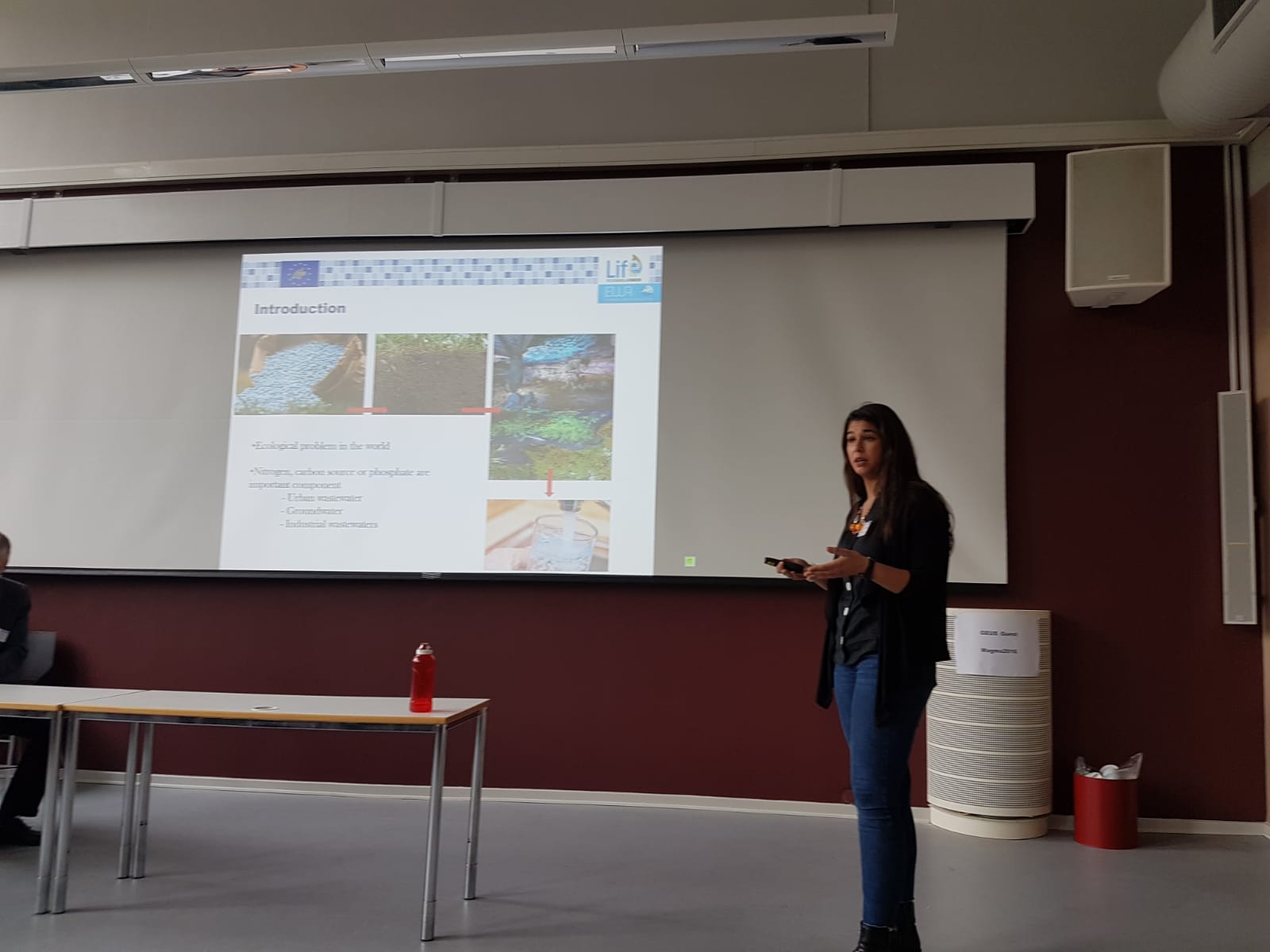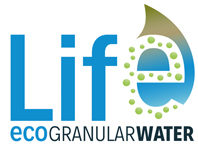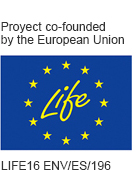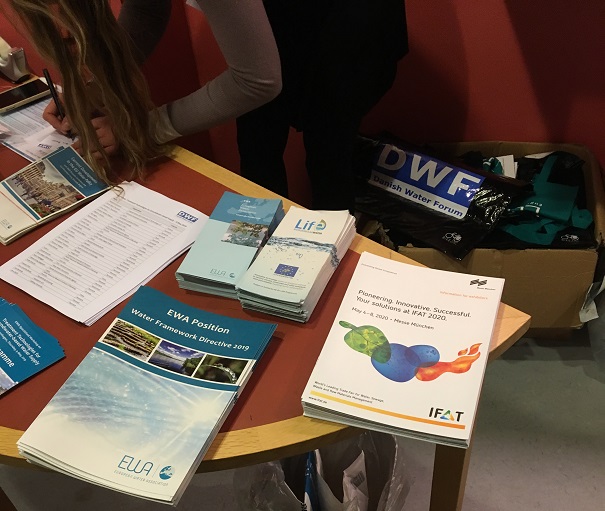9th March, a specialized Workshop on Treatment Technologies for Water supply based on groundwater was held in Copenhagen, organized by the European Water Association EWA. During which Bárbara Muñóz-Palazón presented the results of the research carried out in the Department of Microbiology of the Research Group in Environmental Techniques of the UGR, work that has been developed in collaboration with the AALTO University of Finland, both partners of the LIFE Project.
The EWA (European Water Association) is a non-governmental, independent, non-profit organization that deals with issues related to the management and environmental improvement of water.
The aim of EWA is to provide a forum for discussion on technical and political issues that influence the growth of the European region, through conferences, seminars, meetings and expert working groups, organized on an international basis, as well as regular publication.
On this occasion the Expert Workshop was held in Copenhagen, with the aim of discussing new Treatment Technologies for Water Supply based on groundwater. There met different technical teams of Universities, Research Centers and Water Supply Management Entities (public and private) to meet and share research experiences and results of initiatives launched.
 The PhD student, Bárbara Muñoz-Palazón, from the Department of Microbiology Environmental Techniques Research Group, University of Granada, presented the results of the work developed, in collaboration with the AALTO University of Finland, on the Selection and evaluation of the source of organic carbon, the selective bacterial inoculum and the operating conditions of the granular aerobic system implemented in the Pilot Plant developed for the elimination of nitrates, pesticides and other compounds present in groundwater destined for human consumption, First activity of the LIFE ECOGRANULARWATER Project.
The PhD student, Bárbara Muñoz-Palazón, from the Department of Microbiology Environmental Techniques Research Group, University of Granada, presented the results of the work developed, in collaboration with the AALTO University of Finland, on the Selection and evaluation of the source of organic carbon, the selective bacterial inoculum and the operating conditions of the granular aerobic system implemented in the Pilot Plant developed for the elimination of nitrates, pesticides and other compounds present in groundwater destined for human consumption, First activity of the LIFE ECOGRANULARWATER Project.
In his presentation, under the title “Study of treatment of groundwater by a bioreactor batch of sequencing modified with molecular nitrogen“, the UGR presented the research project that has been carried out in relation to the:
.- definition of the sequencing of the reactor column of the pilot plant
.- composition of synthetic groundwater that has been used in the simulation of the variable and extreme conditions of groundwater
.- RDA studies to establish an objective correlation between microbial community structure in the granules with the physicochemical performance
Among others, the conclusions of the work developed by the UGR have been the following:
- The system showed granulation of biomass and steady-state operation at operational day 90 under anaerobic conditions
- The performance of the bioreactor was controlled by organic carbon concentration, showing high nitrate removal for influent NaAc concentration of 0.5 g L-1 or higher and lower efficiency for 0.25 and 0.20 g L-1 due to accumulation of nitrite
- Higher biomass size and faster settling velocities were detected when bioreactor operated under high organic carbon concentrations
- Finally, Trichosporonaceae family (Fungal Population), Comamonas and Acidovorax (bacterial population) and Thaumarchaeota phylum (archaeal population) were correlated with the BOD and/or nitrogen removal performance in the granular bioreactor amended with N2.
Currently, the Department of Microbiology Environmental Techniques Research Group from UGR is working in the Monitoring of the Pilot Plant installed in Torre Cardela, Granada, and in the behavior of the granulation of biomass and generation of new granules in different environmental conditions of the territory.



